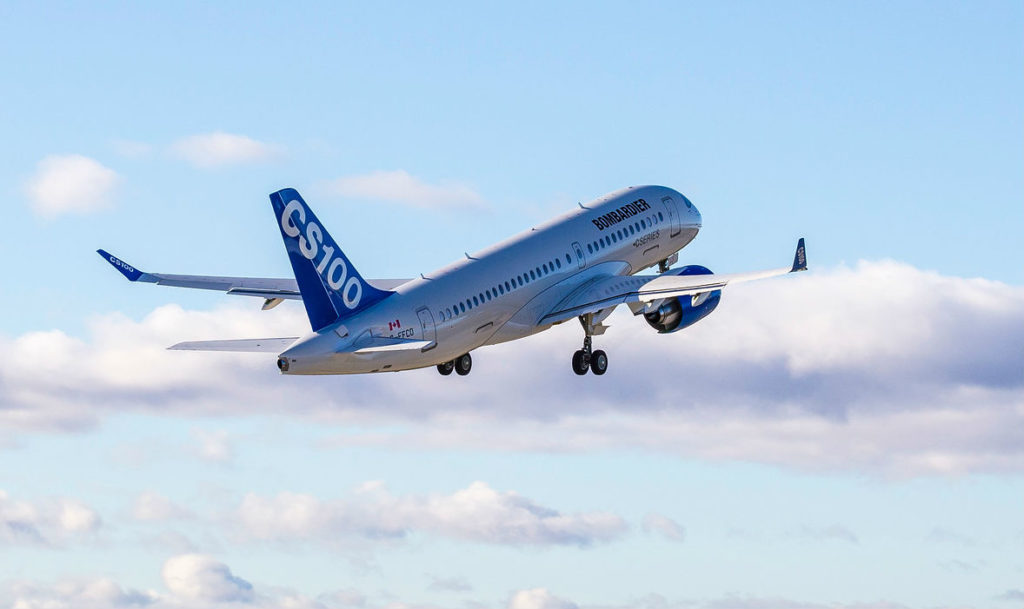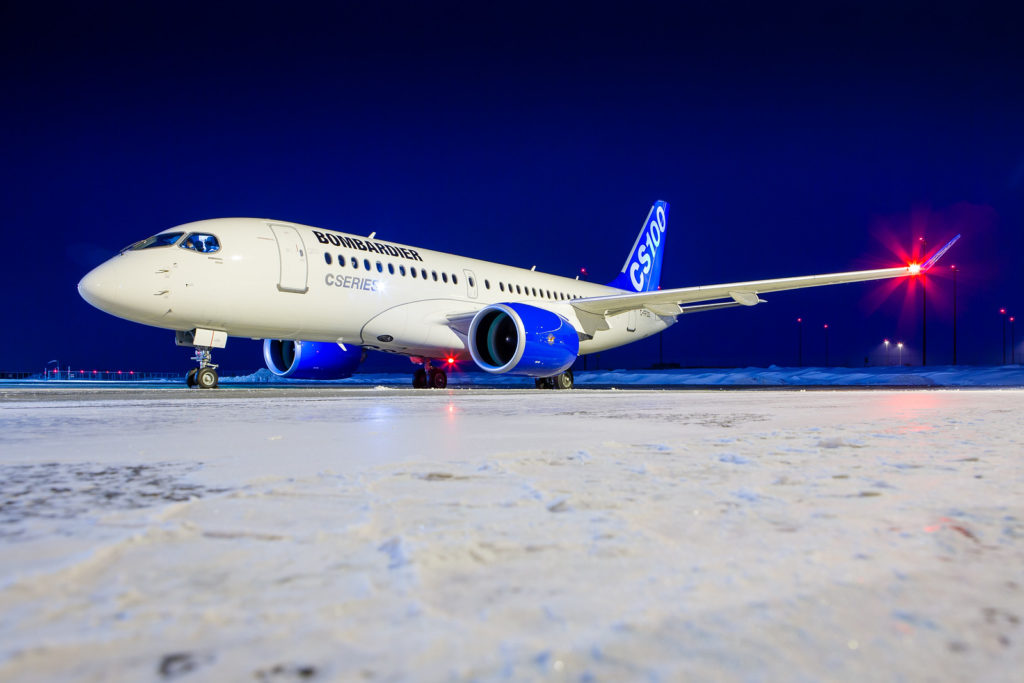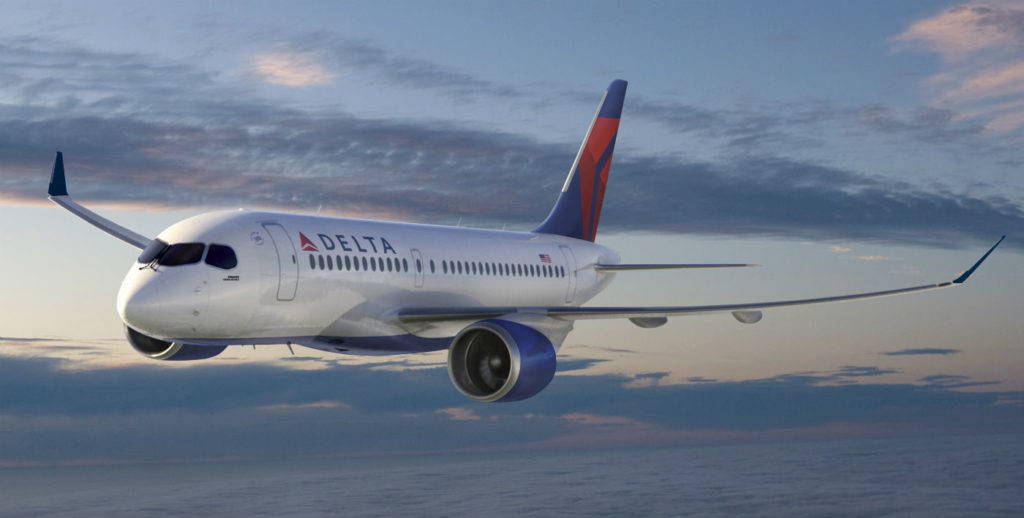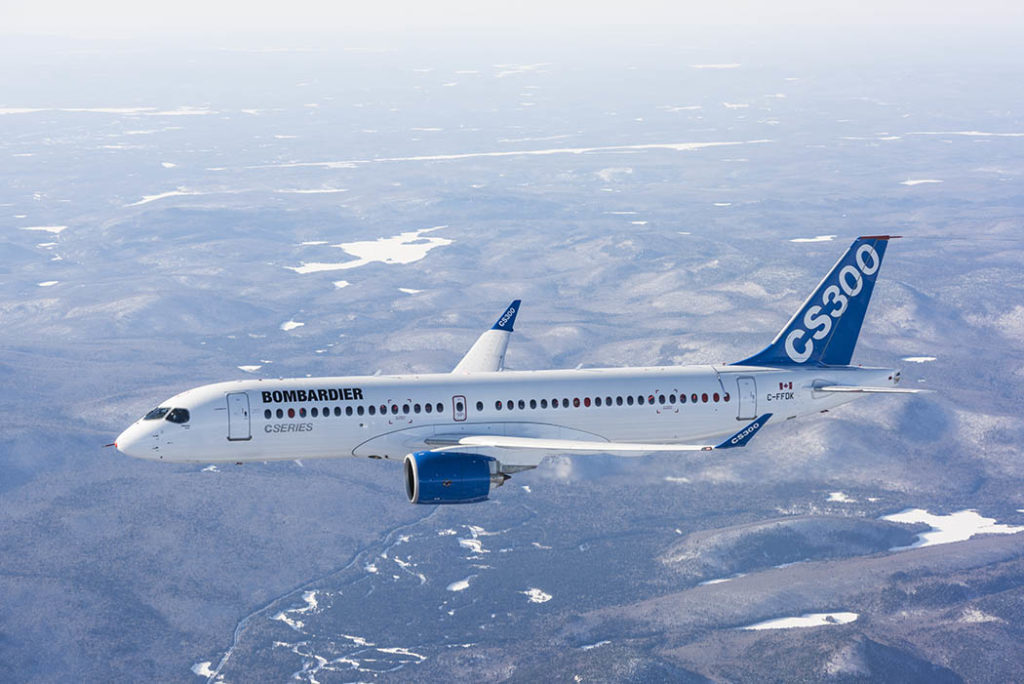Estimated reading time 9 minutes, 9 seconds.
Boeing’s high-stakes battle with Bombardier and Airbus over C Series aircraft took yet another dramatic turn on Wednesday, as the U.S. Department of Commerce upheld a decision to impose massive duties on C Series sold in the United States.

The department announced it will impose duties of 292.21 per cent on the C Series, down slightly from the 299.45 per cent duties announced in a preliminary decision earlier this year.
“This decision is based on a full and unbiased review of the facts in an open and transparent process,” said U.S. commerce secretary Wilbur Ross in a news release.
“The United States is committed to a free, fair, and reciprocal trade and will always stand up for American workers and companies being harmed by unfair imports.”
Canadian government and industry leaders were quick to condemn the move, which will only come into effect if the U.S. International Trade Commission (ITC) rules that Boeing was harmed by the C Series. The ITC’s final decision is expected in February.
“The government of Canada is deeply troubled by the protectionist nature of Boeing’s allegations, which seek to advance its market dominance by excluding Bombardier’s C Series aircraft from the U.S. market,” said Canadian Foreign Affairs Minister Chrystia Freeland in a statement quoted by the Canadian Press.
“It is beyond all reason that Boeing could be threatened with injury in a market segment it exited over a decade ago.”

In collaboration with the federal government, the Quebec government plans to challenge the Department of Commerce decision, said Dominique Anglade, Quebec’s minister of the economy, science and innovation.
Bombardier said in a statement that Boeing’s petition is an “unfounded assault on airlines, the flying public, and the U.S. aerospace industry.
“That has been true since the start of the investigation,” said Mike Nadolski, Bombardier’s vice-president of communications and public affairs. “And recent developments make it even clearer, particularly the Bombardier and Airbus partnership, which will include the construction of a new U.S. manufacturing facility in Alabama. This facility will provide U.S. airlines with a U.S.-built plane thereby eliminating any possibility of harm due to imports.”
The Department of Commerce decision is “divorced from this reality and ignores long-standing business practices in the aerospace industry, including launch pricing and the financing of multibillion dollar aircraft programs,” said Nadolski.
“We remain confident that at the end of the process, the United States International Trade Commission will reach the right conclusion, which is that the C Series benefits the U.S. aerospace industry, U.S. airlines, and the U.S. flying public.”

Nadolski reiterated Bombardier’s argument that the C Series program does not threaten Boeing.
He noted Boeing did not compete in a campaign that saw Delta Air Lines place a firm order for 75 CS100 aircraft, with options for 50 more.
“(Boeing) has not made a plane sized to Delta’s needs for many years, since it stopped producing the 717 and 737-600,” said Nadolski. “Moreover, Boeing has acknowledged that it has oversold its 737 production capabilities and has a backlog of more than 4,300 aircraft orders that stretches years into the future.
“Bombardier’s innovative spirit led us to create the C Series, which is more comfortable, reliable, fuel efficient, and environmentally friendly than anything else in the market. The U.S. flying public and U.S. airlines should not be precluded from enjoying these benefits, especially given the tremendous positive impact the C Series brings to the U.S. aerospace industry.”
Bombardier estimates the new Alabama assembly line will add 400 to 500 direct jobs in the United States, along with thousands more indirect and induced jobs. It will also bring approximately $300 million in new foreign direct investment to the United States, said Nadolski.
“These new U.S. jobs and investment are in addition to the 22,700 jobs already supported by Bombardier’s C Series through its U.S. supply base,” he said.

Boeing framed the Department of Commerce decision as a reaffirmation of the “magnitude to which Bombardier has been subsidized by government funds and the extent to which it dumped C Series aircraft in the United States, selling those aircraft at prices millions below production cost in an illegal effort to grab market share in the U.S. single-aisle airplane market.
“Today’s decision validates Boeing’s complaints regarding Bombardier’s pricing in the United States, pricing that has harmed our workforce and U.S. industry,” continued Boeing in a statement.
“Boeing is seeking a level playing field in the aerospace market and adherence to the globally-accepted agreements governing free and fair trade. We look forward to the conclusion of this matter when the International Trade Commission makes a final decision in early 2018.”
Unifor, Canada’s largest private sector union, also condemned the Commerce Department’s decision, calling it “unjust.”
“It’s incredibly disappointing that the U.S. Commerce Department has decided to maintain punitive and unreasonable tariffs which hurt the entire aerospace sector,” said Unifor national president Jerry Dias in a news release.
“This is why it is so important to protect the ability to engage in industrial policy, and provisions for independent dispute mechanisms, in any free trade agreements.”
Unifor represents more than 315,000 workers, including Bombardier workers in Canada.
“The reality is that governments both here and in the States have a role to play in supporting a viable aerospace industry,” said Renaud Gagné, Unifor Quebec director.
“The U.S. decision to impose these duties is an overreaction from a government committed to protectionist policies, an overreaction that will put American jobs at risk as well.”
Unifor called on Canada’s federal government to push back against the crippling tariffs and protect its right to support Canadian industries. Unifor also said it will continue to work with Unite, the union representing Bombardier workers in Northern Ireland, on a shared strategy to protect well-paying aviation jobs.
The U.S. Department of Commerce noted the enforcement of U.S. trade law is a “prime focus” of U.S. President Donald Trump’s administration.
“Foreign companies that price their products in the U.S. market below the cost of production or below prices in their home markets are subject to AD [anti-dumping] duties,” the department said in a release.
“Foreign companies that receive financial assistance from foreign governments that benefits the production of goods from foreign companies and is limited to specific enterprises or industries, or is contingent either upon export performance or upon the use of domestic goods over imported goods, are subject to CVD [countervailing] duties.”
From Jan. 20, 2017, through Dec. 18, 2017, Commerce said it initiated 79 antidumping and countervailing duty investigations, a 52 per cent increase from the previous year.









All canadian, britain and EU airlines and defense industries should stop buying all products made by Boeing. PERIOD.